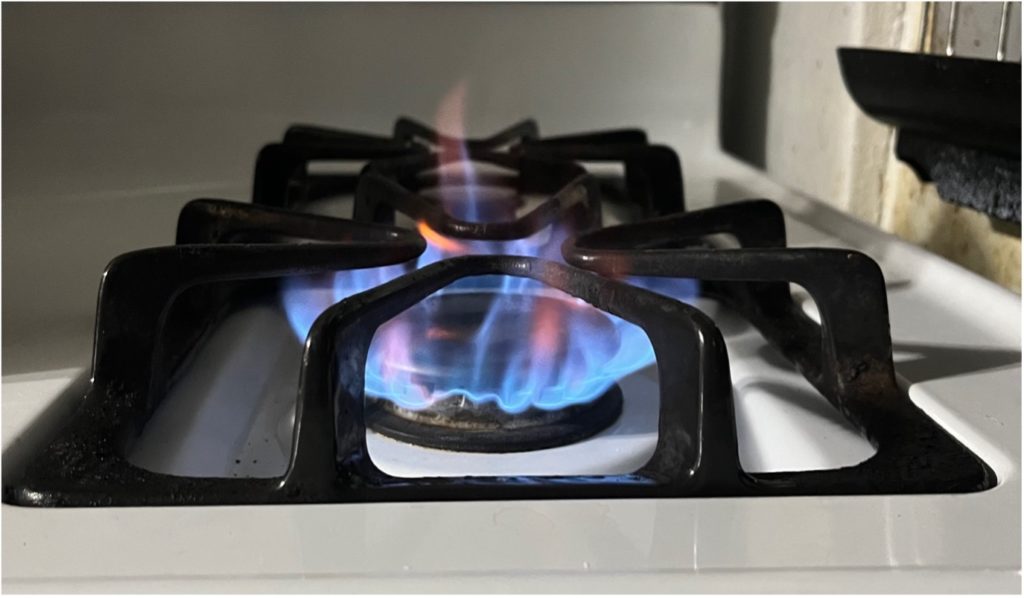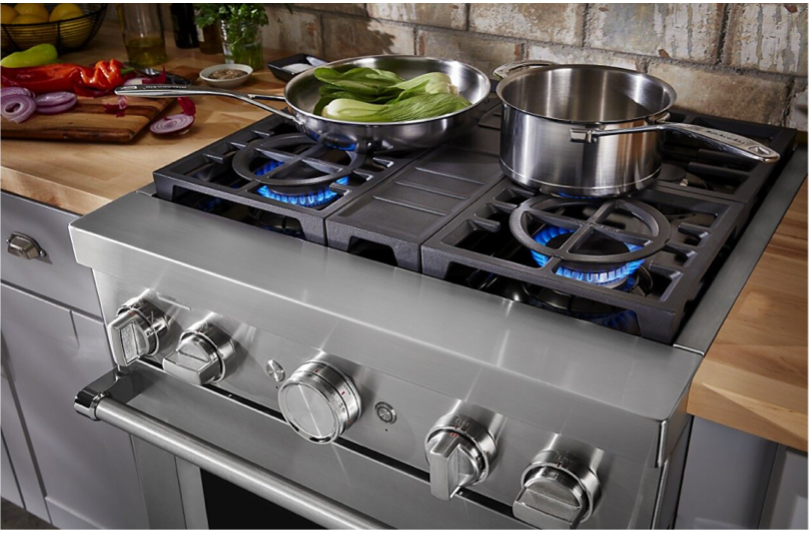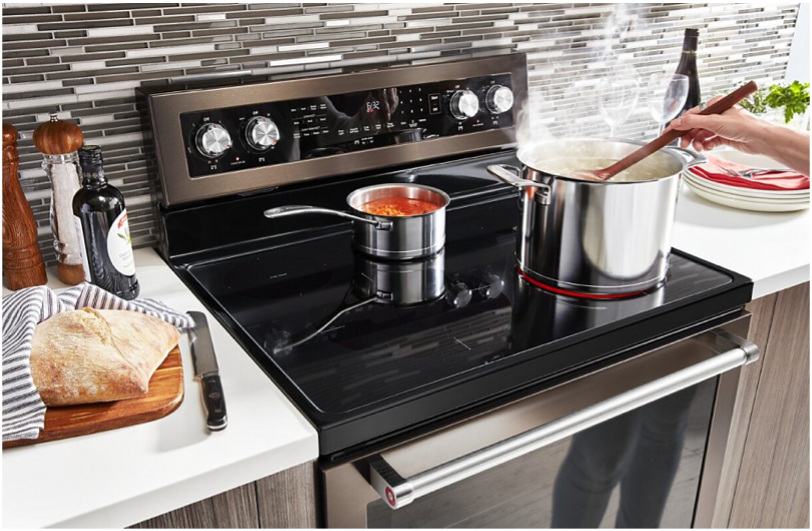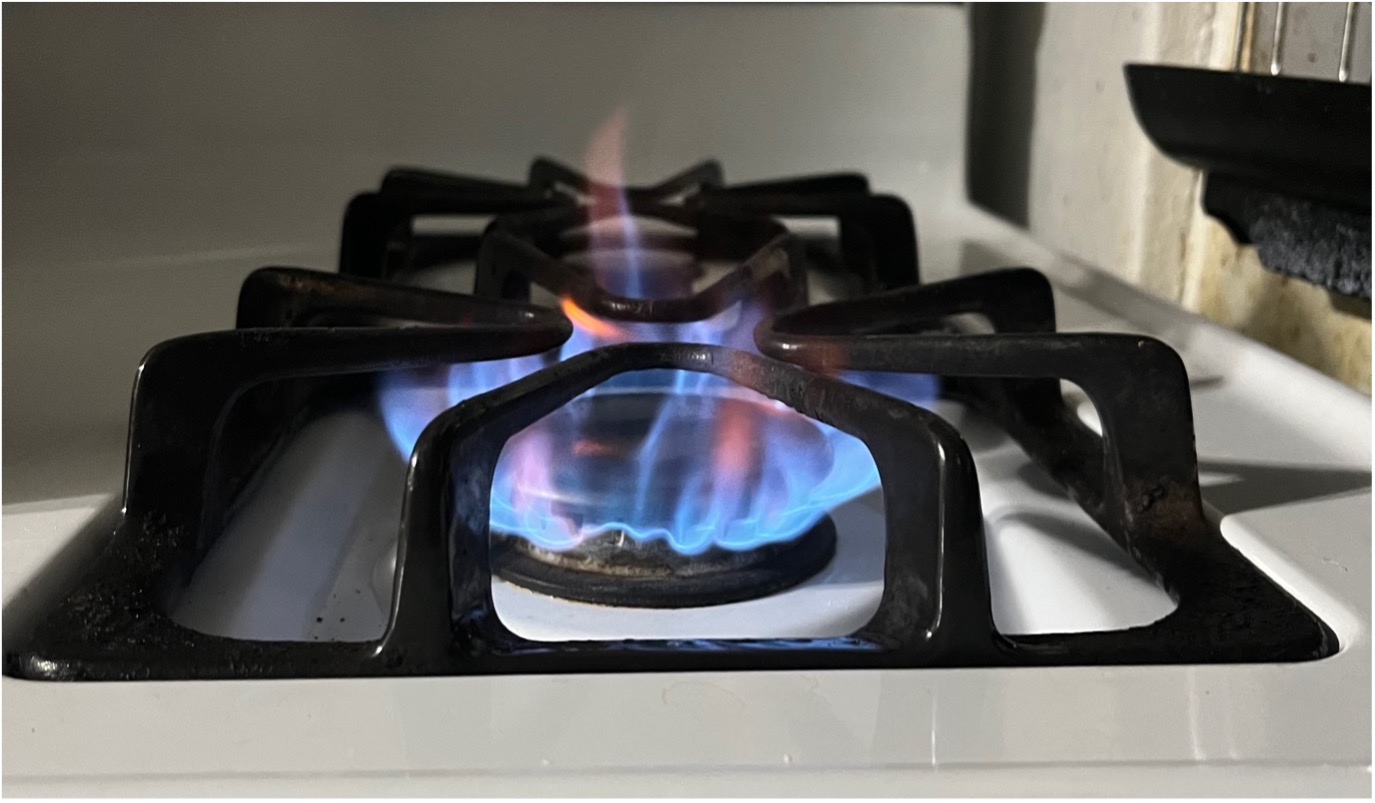Written by: Rashawn Khamari Merchant

Rashawn Merchant/Earth Shiners
The bedroom wasn’t the only thing heating up this month. A topic of much debate has arisen, and it is regarding the kitchen stove. This discussion came from statements by Consumer Product Safety Commission officials discussing the potential to regulate gas stoves. This has been an ongoing conversation as more research has been done to observe the health effects of gas appliances concerning climate change. The mentioning of favor towards electric stoves caused immediate backlash as many citizens around the country thought there’d be a ban on gas stoves. It’s worth mentioning that many of these citizens are right-leaning and support comments made by republican congresspersons. The Texas GOP Rep. Ronny Jackson made one of those comments, stating, “They can pry it from my cold dead hands.”
The federal government isn’t issuing a nationwide ban on gas stoves to alleviate confusion. However, there have been local city plans across the country to regulate natural gas use in new buildings. This wouldn’t affect those already living in older housing that uses natural gas connections. While this controversy continues, let’s examine why electricity has begun to be preferred over gas and if making a switch is right for you.
Let’s start with the differences between gas and electric stovetops.

KitchenAid
Gas stoves utilize an open flame that is often powered by natural gas. Many buildings have long existed, and natural gas was the primary power source throughout the 20th century.
Gas stoves do certainly provide cooking benefits. KitchenAid describes them as highly responsive and able to move between heat levels quickly. Many appreciate this option as it helps cook meat and the ease of using woks. There is a romanticism that intersects gas cooking. Many have grown up with flame cooking and like having control. Electric stoves usually feature a flat surface with heated coils above or beneath the range top. Electric stoves are highly efficient when transferring heat to metal pots and pans. You’ll experience less loss of heat transfer, as the electric capabilities allow you to quickly cycle on and off. Induction stoves are famous for being able to boil a pot of water. Large quantities are often finished in two minutes or less, and the dry heating component in the ovens is excellent for roasting vegetables and baking.
All in all, the choice is absolutely yours for preferences on cooking styles and methods. Nonetheless, we live in a day and age where many of our personal decisions have harmed the environment. Through Earth Shiners, the environmental impact is the number one priority. This leads us towards stoves powered by electricity. Natural gas emissions are a leading cause of the greenhouse effect, and Harvard has noted that it impacts indoor air quality.

KitchenAid
Researchers have found that gas stoves contribute to three times the amount of nitrogen dioxide and nearly twice the amount of carbon monoxide in homes. These chemicals are known as silent killers, as they leak without the stoves being on. Additionally, gas fumes worsen respiratory illnesses. As many Americans have asthma, chest pains and shortness of breath can occur inside homes with inadequate ventilation.
Something dear to many has become central to a political war. Health should never be politicized and only encouraged. Unfortunately, many residents cannot purchase a new stove and may still have to succumb to the powering systems of their older buildings. With new incentives from the Inflation Reduction Act, it’s possible to receive a rebate of up to $840. Please encourage yourself or anyone you know to consider the switch. Electric stoves may not be what you’re used to, but they are a safer alternative.
Thanks for Reading!
Earthshiners@earthshinersmagazine.com
Copyright 2023 Earth Shiners Creative LLC

Leave a Reply